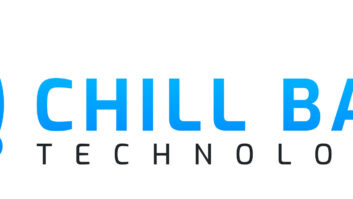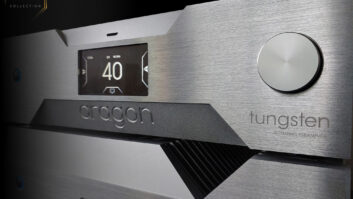Like vultures fighting over fresh carrion, the nation’s two leading satellite providers swooped into Time Warner Cable’s largest territories this month with aggressive promotional offers aimed at grabbing away outraged cable customers who lost ABC Network stations for a 39-hour period.
The activity was sparked by the heavily publicized decision of Time Warner Cable to drop ABC-TV affiliate stations in some of its largest territories — including Houston, New York, Los Angeles and Philadelphia — at the start of sweeps week.
The tactic was used to protest the higher prices and conditions ABC-parent Disney was asking for the right to carry its services under new cable contracts.
The stunt appeared to backfire on the cable operator, which hastily negotiated a temporary deal to keep ABC affiliates on its cable platforms until a longer-term deal could be ironed out with Disney. A July 15 deadline has been set for that agreement.
At the same time, a number of enraged local and federal regulators staged public hearings and issued sharp warnings over what they saw as an illegal action and a violation of its franchise agreements with local municipalities.
The Federal Communications Commission found Time Warner violated a rule that prohibits cable companies from deleting local signals during the sweeps week period, which is critical to broadcasters in determining advertising rates. The commission said it will consider enforcement actions separately.
“Time Warner Cable committed a clear violation of FCC rules,” FCC chairman William Kennard said. “Unfortunately, millions of consumers paid the price. No company should use consumers as pawns in a private contract dispute.”
Meanwhile, both satellite providers were virtually giddy over the wave of negative publicity that sent more reactionary consumers to satellite dealers to avoid similar stunts.
The day after the blackout, EchoStar began peppering the local media in the cities with full-page newspaper ads announcing a new promotional offer and pointing out that local ABC stations were available on its platform in affected markets.
EchoStar actually announced two different offers at the same time, one open to customers across the United States, the other targeted specifically to Time Warner subscribers.
The first offer, the “Digital Dynamite” program, offered new customers the chance to pick up two DBS receivers for a one-time fee of $99, plus a one-year commitment to take the Dish Network America’s Top 150 programming package for $49.99 per month. EchoStar said the $99 charge covers the cost of installation and the $5 monthly fee traditionally assessed for second or more receivers.
In addition, customers get a three-year price guarantee on the AT-150 package and the promise of in-home service and support.
The IRD models selected for the program include model 2700 and model 4922, which has OpenTV capability.
The second offer, called “It’s Easy As ABC,” offered Time Warner subscribers a free single-IRD system and installation after a commitment to a year of the AT 150 package for $39.98 per month. For others, EchoStar has extended its One Rate Plan, offering a free system for a commitment to an AT 150 package at $39.98 per month. However, customers must pay $99 for professional installation under that program.
“We’ve seen a spike in business since the Time Warner incident,” stated an EchoStar spokesman. “EchoStar has a true alternative to cable, and we think we have the best offer out there.”
In addition, he said, EchoStar is assuring customers that it will not increase subscription rates for at least two years.
DirecTV, meanwhile, negotiated with ABC parent Disney to co-sponsor a similar promotion for its system. In Houston, Los Angeles and New York, local ABC affiliates ran full-page newspaper ads offering a $198 rebate from the station for the first 1,000 Time Warner subscribers to order DirecTV systems and installation. The advertised “sample retail cost for a basic DirecTV system and standard installation” was $198.
The headline on the ad stated, ” If Time Warner can dish it out, so can we. At no cost to you,” and a special hotline number was listed to take orders. A DirecTV spokesman said the offer was so successful, selling out in hours in both New York and Los Angeles, that it was expanded to an additional 1,000 subscribers in each market.
Although EchoStar also carries ABC stations in those markets, the Dish Network was not included because, according to an EchoStar spokesman, EchoStar is still trying to reach a retransmission deal with the local stations.
Although unlikely, the possibility remained that EchoStar could lose some of the ABC affiliates if deals are not completed by May 29, when the FCC transition period ends and satellite providers must have formal retransmission agreements in place to carry local signals.
An EchoStar spokesman said the company is planning to announce all of its retransmission deals at one time prior to the FCC deadline. “It’s very unlikely that we would not have reached an agreement [with ABC affiliate stations] by then,” he said.
Despite the hype from programming providers, IRD manufacturers were downplaying the potential for a spike in hardware sales.
Executives from Thomson (RCA) and Hughes Network Systems said they had no evidence of a spike in orders immediately prior to the ABC blackout. One executive added, “I don’t expect this to be much of an issue.”
Comparatively, the Time Warner territories represent a relatively small pocket of total U.S. consumers. Additionally, many of the cable operator’s territories are in large urban markets where multiple-dwelling-unit housing predominates. Although inroads have been made, satellite operators have a harder time installing satellite systems in apartment and condominium facilities, where consensus agreements are required and building association covenants can bar the use of dishes.













